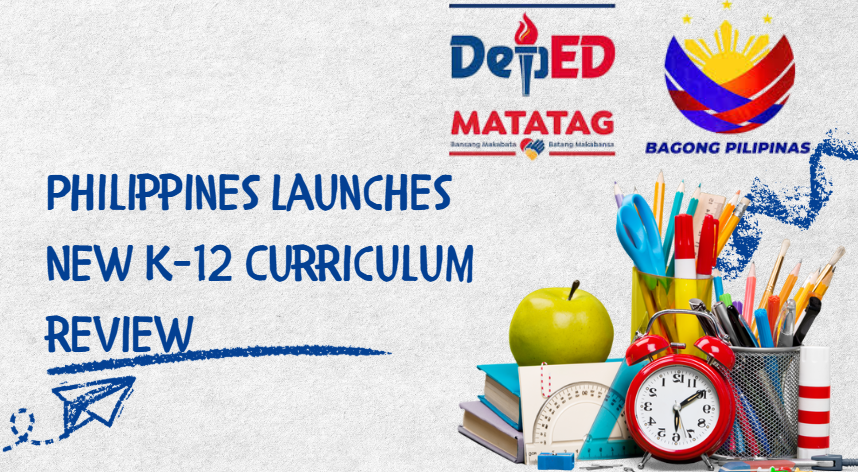DepEd announced plans to reassess K-12 for better focus on literacy and critical thinking starting 2025.
Reference: Rappler.com
Summary
The Department of Education (DepEd) of the Philippines has officially launched the new “Matatag K-12” curriculum on August 10, led by Vice President and Education Secretary Sarah Duterte. This initiative aims to enhance educational outcomes and student success by integrating vital skills into the learning framework. The curriculum emphasizes peace competencies, focusing on non-violent actions and conflict resolution skills, reflecting an effort to equip students not only academically but also socially. However, the agency has acknowledged challenges in prior implementations due to an overloaded curriculum that placed a heavy burden on both teachers and learners, thus limiting effective instruction time. In light of these challenges, the Matatag K-12 curriculum will streamline subjects, notably removing “mother tongue” as a medium of instruction while allowing subjects like English to remain pivotal. The phased implementation is set to commence in the school year 2024-2025, targeting kindergarten, grade 1, grade 4, and grade 7 students. This reform represents a proactive step towards improving the quality of education in the Philippines, aligning teaching strategies with the needs of modern learners.
Highlights
📚 Launch of “Matatag K-12” curriculum aimed at improving learning outcomes.
✏️ Integrates peace competencies to promote non-violence and conflict resolution.
⚖️ Addresses challenges of an overloaded curriculum affecting teachers and students.
📉 Removal of “mother tongue” as a medium of instruction to reduce burden.
🎓 First phase to be implemented in school year 2024-2025 across specific grades.
🔄 Emphasizes balance between educational content and instructional time.
🙏 Commitment to serving the community and enhancing student success.
Key Insights
🚀 Curriculum Overhaul: The launch of the Matatag K-12 curriculum signifies a paradigm shift in the Philippine educational system. By addressing the previous issues of an overwhelming curriculum, the new framework is designed to facilitate a more organized and effective educational process, allowing for deeper engagement rather than superficial coverage of content.
🤝 Focus on Non-Violence: The inclusion of peace competencies underscores a growing recognition of the importance of social-emotional learning in education. Teaching students conflict resolution and promoting non-violent actions equips them with essential life skills that extend beyond academics.
📝 Streamlined Instruction: By removing certain subjects like “mother tongue,” the curriculum aims to reduce the cognitive load on educators and learners. This move is critical in fostering an environment where teaching can be more focused, benefitting students’ retention and understanding of the core subjects.
⚠️ Teacher and Student Burden: The acknowledgment of past burdens faced by teachers highlights systemic issues within the educational structure. It emphasizes the need for reforms not merely to add more content but to ensure that what is taught is manageable and conducive to meaningful learning experiences.
⏳ Phased Implementation Strategy: The strategic rollout of the curriculum in phases allows for gradual adaptation and feedback collection, aiding educators in transitioning effectively. Starting with foundational grades gives stakeholders time to adjust teaching methods and materials appropriately.
📈 Potential for Improved Outcomes: Should the Matatag curriculum succeed in its objectives, it has the potential to significantly enhance learning outcomes for students, fostering a generation of well-equipped individuals ready to engage positively in society.
🌍 Community Engagement and Values: The emphasis on serving the people and giving glory to God underlines a commitment to values-driven education. Integrating community-oriented principles within the curriculum aims to cultivate a sense of responsibility and purpose in students, preparing them to become conscientious citizens.
This comprehensive overview articulates both the challenges identified in previous curricula and the transformative approach introduced by the Matatag K-12 framework, highlighting a significant and hopeful shift in Philippine education.

